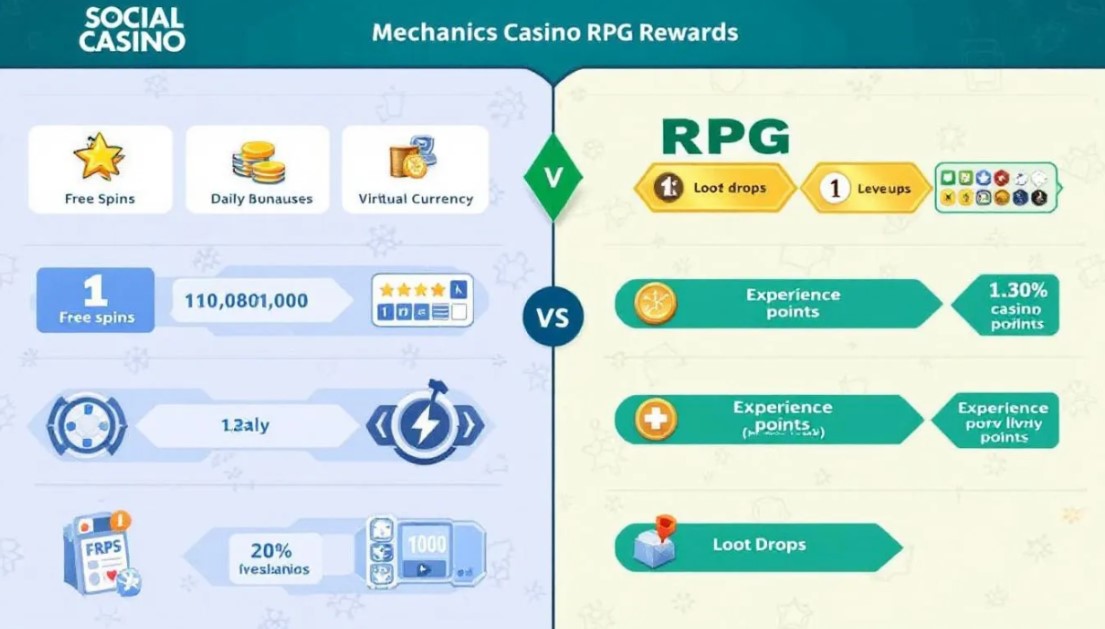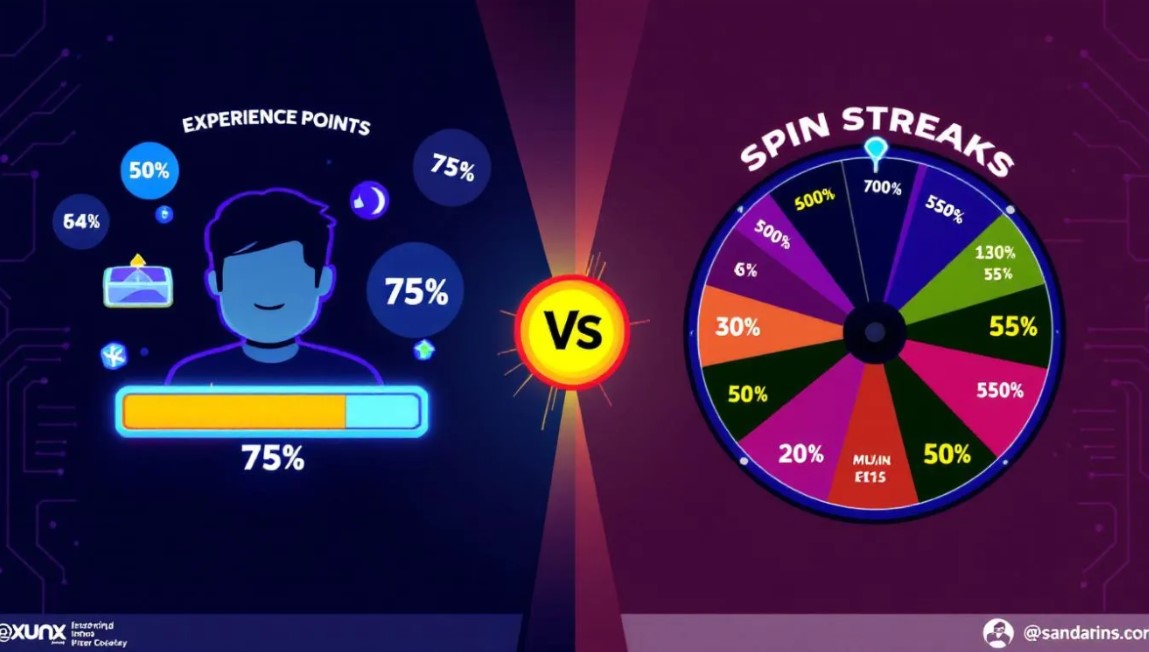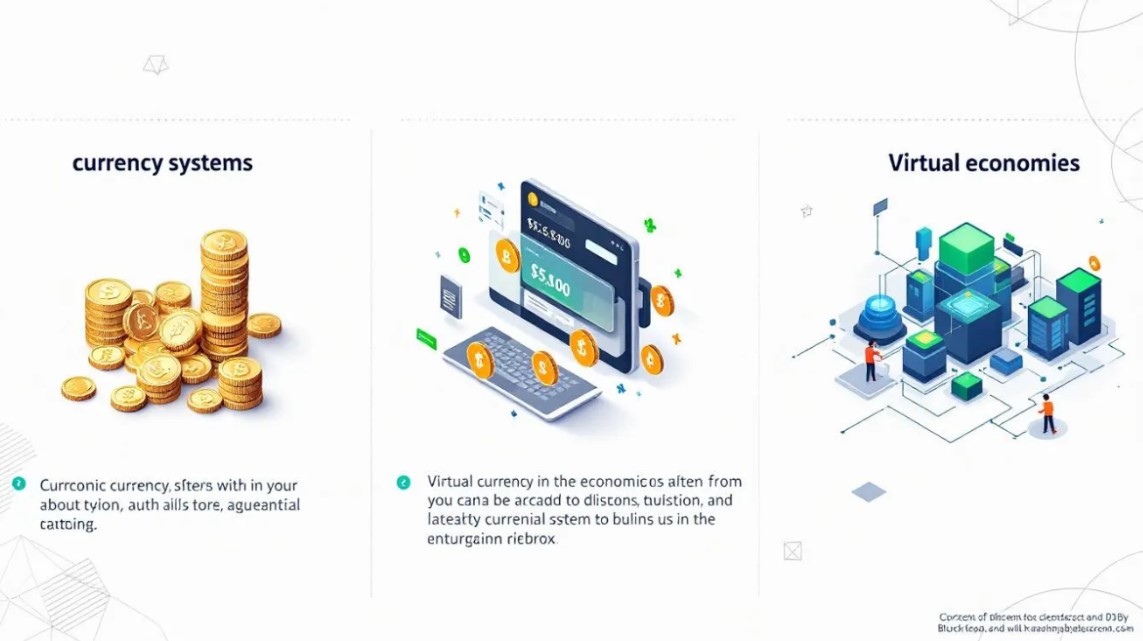Games
Leveling Up Luck

Video games have always been about more than pixels and graphics—they’re about systems that keep us playing. For role-playing game (RPG) fans, that often means grinding for experience, unlocking new gear, and chasing the next big quest. For social casino players, the thrill comes from spinning reels, completing daily challenges, and racking up streak bonuses. At first glance, the two worlds seem far apart: one focused on epic adventures, the other on slot machines and roulette wheels. Yet when you look closely, Sweepstakes Casino Sixty6 and similar platforms show how social casino game mechanics and RPG systems share a surprising amount of DNA. Both genres use progression, reward loops, and community features to keep players engaged.
Social casino games are part of the larger gaming industry, which continues to grow rapidly and generate significant economic impact. The estimated global value of the social casino games market highlights its financial scale and profitability. These platforms appeal to a broad audience, attracting diverse groups of players thanks to their inclusivity and accessibility.
This article dives into the parallels—why social casino rewards feel so familiar to RPG veterans, how design techniques overlap, and what this says about the universal psychology of play.
1. The Shared DNA of RPGs and Social Casinos
Both RPGs and social casinos thrive on engagement loops. In an RPG, you might slay enemies, gather loot, and level up. In a social casino app, you spin reels, win coins, and unlock bonuses. Different themes, but the underlying formula is the same: action → reward → progression. Some key features that contribute to the appeal and engagement of social casino games include daily challenges, leaderboards, social sharing, and interactive events.
Game designers understand that players love feedback and growth. A glowing “Level Up” banner in an RPG creates the same dopamine spike as hitting a jackpot animation in a casino app. This loop of anticipation and reward is what keeps players logging back in, whether they’re exploring dungeons or chasing free spins. These mechanics are central to player engagement, as they encourage ongoing participation and foster a sense of achievement.
2. Experience Points vs. Spin Streaks

Leveling through experience points is the backbone of any RPG. Each battle or quest nudges the player closer to the next milestone, giving a sense of progress. Social casino apps replicate this feeling with streak bonuses, daily bonuses, and level systems.
Play every day, and you unlock multipliers, daily bonuses, or larger prize pools. The mechanic is functionally similar to grinding XP—it’s not just about the immediate reward, but about stacking progress over time. In both cases, players are motivated to return regularly, ensuring they don’t lose their momentum.
3. Loot Boxes and Slot Machines: A Familiar Thrill
For RPG gamers, loot boxes or treasure chests offer a rush of excitement. Will it be a rare sword, a powerful spell, or just another common item? The randomness, combined with rarity tiers, keeps the process thrilling. Immediate rewards are a core part of this excitement, as players receive instant incentives that enhance engagement.
Social casino game mechanics work in almost the same way. Slot machines and bonus rounds, which are among the most popular games in social casinos, deliver that same “reveal” experience. You press a button, hold your breath, and wait to see what drops. In addition to slots, social casino platforms also offer other games like poker and blackjack, providing a diverse gaming experience. The thrill of unpredictability unites both systems—even when outcomes are chance-based, the presentation makes it feel rewarding.
4. Quests and Daily Challenges
RPGs guide players with quests—structured goals that provide rewards and direction. Social casino games apply this mechanic with daily missions and login bonuses.
For example, you might receive a challenge to spin a certain number of times, hit a streak, or achieve a mini-milestone. Completing these tasks delivers coins, multipliers, or access to bonus rounds. Much like RPG questlines, these challenges prevent aimless play and ensure players always have something to accomplish.
This structure is particularly effective for mobile audiences who often play in short bursts. The rise of mobile gaming has made social casino games widely available as mobile games and mobile apps, allowing players to access these experiences conveniently on their devices. A quick daily challenge feels manageable and rewarding, just like checking off a small quest in an RPG.
5. Currency Systems: Gold Coins, Virtual Currency, and Virtual Economies

No RPG is complete without its in-game economy. Players juggle gold, gems, crafting resources, and sometimes premium currency. The balance between earnable and purchasable resources shapes the entire experience.
Social casino apps mirror this with dual-currency systems. Players often receive free Gold Coins for casual play, alongside Sweeps Coins or chips that act as premium currency. In social casino games, virtual currency, in game currency, and virtual tokens are used to facilitate gameplay, allowing players to place bets, unlock features, and enjoy entertainment without real-money risk. Players can acquire additional virtual currency and virtual tokens through gameplay achievements or by purchasing them, enhancing their gaming experience.
The setup is nearly identical to RPGs, where free grinding exists alongside optional microtransactions. These microtransactions, including in app purchases and app purchases, are key monetization strategies that allow players to buy virtual currency, token packages, or exclusive content. The free to play model supports accessibility for all users while generating revenue for social casino platforms through in-app purchases and advertising.
This design ensures accessibility while offering progression paths for both casual and committed players. It’s a system RPG fans immediately recognize—and one that makes social casino platforms feel surprisingly familiar.
6. Multiplayer and Guild-Like Features
One of the hallmarks of modern RPGs is the guild or clan system, where players join forces for raids, leaderboards, multiplayer modes, multiplayer games, and group rewards. Social casino game mechanics increasingly adopt similar social features, emphasizing social interaction and social interactions as central to their appeal.
Leaderboards allow players to compare their progress, while tournaments and hosting tournaments mimic cooperative or competitive events that engage players. Multiplayer modes and multiplayer games further enhance social interaction by allowing real-time collaboration or competition. Some apps even introduce gifting systems, where players can share coins or rewards with friends, send virtual gifts, and exchange virtual gifts to foster community building.
Chat rooms serve as a hub for community building and player interaction, enabling users to share tips, celebrate wins, and connect in a lively environment. Inviting friends and the invite friends feature help enhance social connectivity, allowing players to expand their network, share achievements, and participate in challenges together.
This social layer transforms casino play from a solo pastime into a community experience, echoing the cooperative spirit of RPGs. These social features contribute to a dynamic gaming environment, proving that even luck-based games become richer when combined with human connection.
7. The Balance of Skill and Chance
RPGs often emphasize skill—strategy, stat optimization, and smart resource management. Social casino games rely more heavily on chance, but that doesn’t mean strategy is absent.
Players still make decisions: when to use coins, which games to try, how to pace spins, and when to leverage bonuses. Understanding player behavior allows developers to design engaging gameplay elements that combine traditional casino features with mechanics from other genres, such as puzzles or role-playing, to enhance user engagement. This illusion of control, paired with chance outcomes, keeps the experience engaging. Both genres give players a sense of agency, even when randomness plays a dominant role.
8. Why These Mechanics Work Across Genres
Whether you’re grinding for XP or spinning reels, the underlying mechanics appeal to universal human motivations:
- Progression – The joy of getting stronger or moving forward.
- Unpredictability – The thrill of not knowing what’s next.
- Social Connection – The fun of sharing progress with others.
Social casino gaming has seen significant growth within the broader casino gaming and online gaming industries, driven by the rise of social gaming as a major trend. Social casino game mechanics borrow RPG structures because they’re proven to work. Players enjoy short, rewarding sessions, and developers know how to keep engagement high. The overlap between these two genres shows how much game design has converged around rewarding play loops.
Social casino games are inspired by traditional casino games and casino-style games such as slots, poker, blackjack, and roulette, but they do not involve real money gambling, win real money, or offer real cash prizes. Unlike real money casinos and traditional gambling platforms, social casino games do not expose players to financial risk, real financial risk, or financial risks. There is no opportunity to lose or win real money, and these games are designed for entertainment rather than profit. Social casino games are unlike traditional casinos and do not involve real money gambling, making them accessible and risk-free alternatives to traditional casino and physical casino experiences.
On the surface, RPGs and social casinos might seem worlds apart. One is about epic adventures, the other about luck-based spins. Yet when you compare the systems closely, the similarities stand out. Social casino game mechanics borrow heavily from RPG traditions—experience streaks, loot-like reveals, quests, virtual currencies, and even guild-style communities. Game developers play a crucial role in designing these engaging experiences, often integrating social features that mimic the lively atmosphere of a physical casino.
Popular social casino platforms like Zynga Poker and DoubleDown Casino exemplify these trends, offering free gameplay with the option to continue playing through in-app purchases or by earning virtual currency. Social media platforms have also been instrumental in the growth of social casino games, providing a space where people who play social casino games can interact, share achievements, and invite friends to join.
These parallels explain why RPG fans often feel comfortable exploring casino apps. The mechanics are familiar, the rewards recognizable, and the dopamine loops universal. While RPGs and social casinos differ in theme, both genres showcase the timeless appeal of progress, unpredictability, and social play. Responsible gaming practices remain important in social casino gaming, ensuring a safe and enjoyable experience for all players.
Looking ahead, emerging technologies such as augmented reality and virtual reality are set to further enhance the immersive and interactive aspects of social casino gaming, shaping the future of the industry.
In the end, leveling up luck isn’t so different from leveling up a character—it’s all about chasing that next reward.
-

 Entertainment1 month ago
Entertainment1 month ago123Movies Alternatives: 13 Best Streaming Sites in 2026
-

 Entertainment2 months ago
Entertainment2 months ago13 Free FMovies Alternatives to Watch Movies Online in 2026
-

 Entertainment1 month ago
Entertainment1 month ago13 Flixtor Alternatives to Stream Free Movies [2026]
-

 Entertainment1 month ago
Entertainment1 month agoGoMovies is Down? Here are the 11 Best Alternatives






